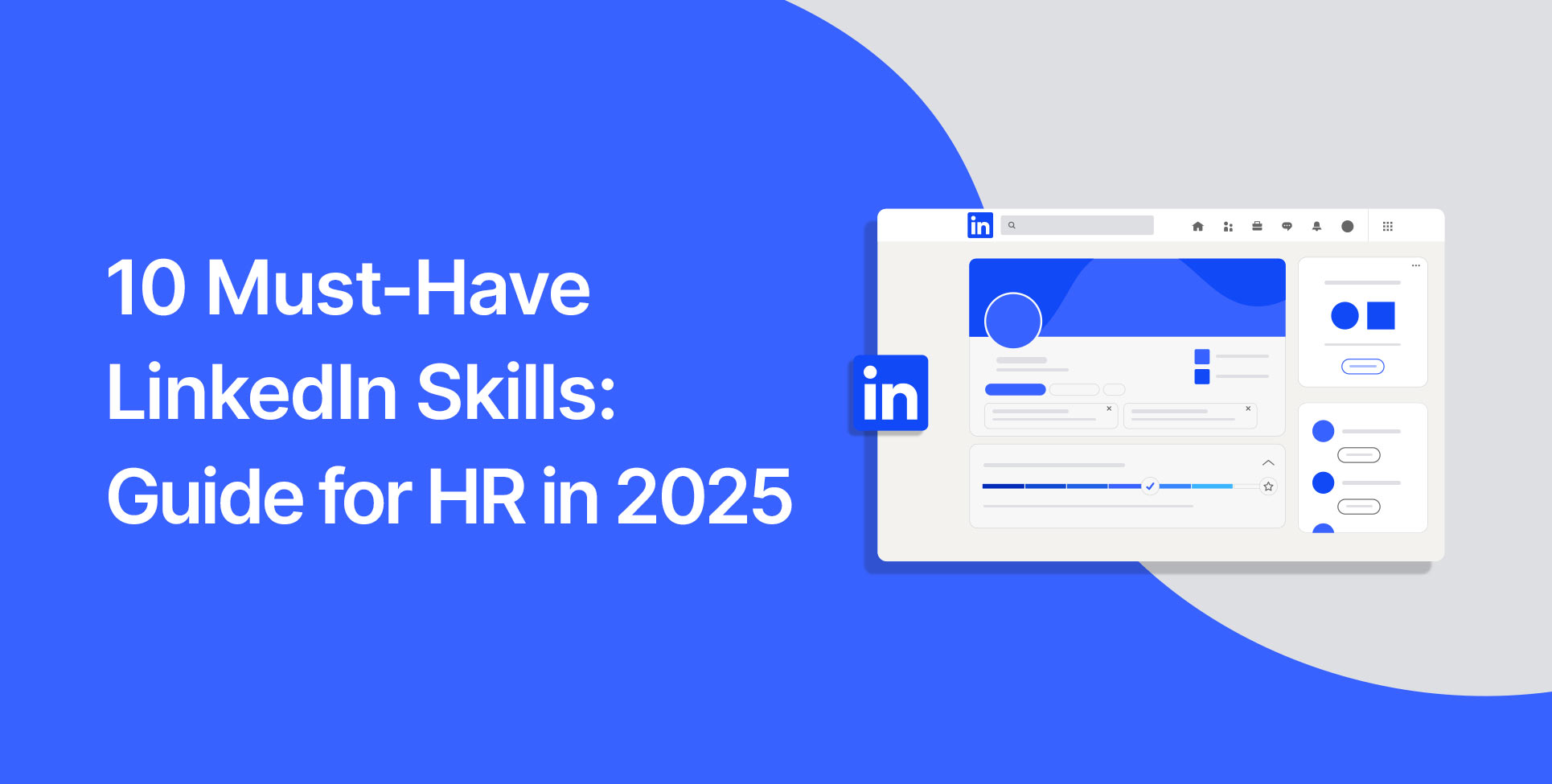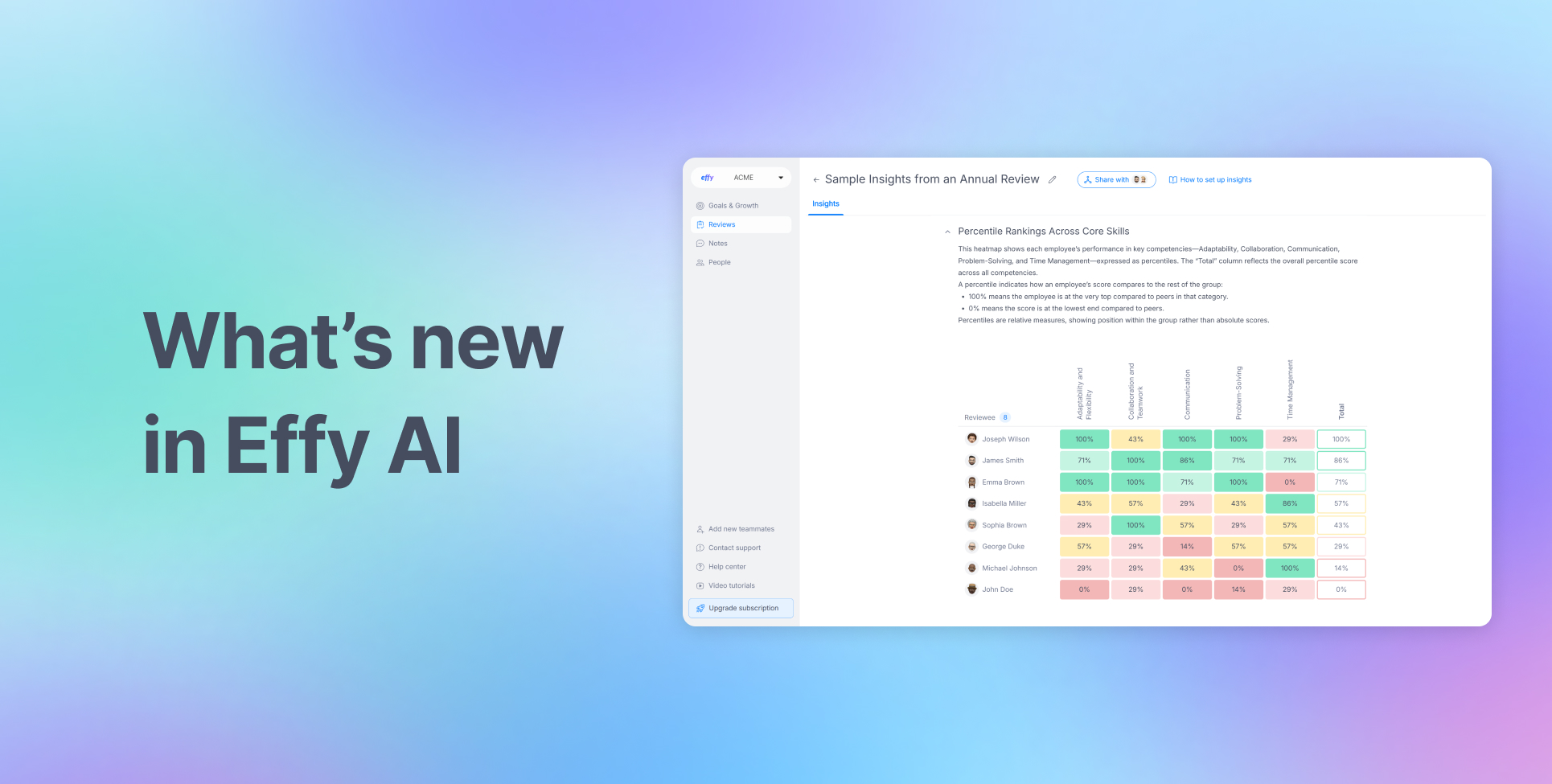Finding qualified candidates has become increasingly challenging as traditional hiring methods fall short in today's competitive market. HR managers need more sophisticated approaches to identify professionals who possess the relevant skills their organizations require.
Understanding and leveraging LinkedIn skills in 2025 effectively transforms how HR teams discover, evaluate, and hire top talent. This comprehensive guide provides actionable strategies that modern hiring managers can implement immediately to improve their recruitment outcomes significantly.
What are LinkedIn skills?
LinkedIn skills are keywords and phrases that professionals use to describe their abilities, expertise, and competencies on their profiles. These skills listed help showcase what someone can do and serve as searchable tags for recruiters and hiring managers.
Unlike the previous skill assessment system, LinkedIn now allows users to connect skill sets directly to their work experience, education, and projects. This creates a more authentic representation of how job skills were applied in real-world contexts rather than theoretical knowledge.
LinkedIn currently hosts thousands of different abilities across various categories including technical skills, soft skills, and industry-specific competencies. For HR teams managing talent acquisition, effective HR systems for small business often integrate with LinkedIn profile and skills data to streamline the recruitment process and identify qualified resumes more efficiently.
Related
Best self-performance review examples
Questions to Ask In a Performance Review?
Why LinkedIn skills matter for HR teams
As the job market evolves toward competency-based hiring, traditional resume screening methods are becoming less effective. HR teams need more precise tools to identify qualified job seekers quickly and efficiently in today's competitive talent landscape.
Skills-based hiring trend
Organizations are shifting from degree-focused to skills-focused recruiting, with 76% of employers now prioritizing demonstrated abilities over educational credentials. This transformation helps companies access broader talent pools and find candidates who can actually perform required tasks effectively.
Enhanced candidate discovery
The LinkedIn platform functions as a powerful search filter, allowing recruiters to pinpoint candidates with specific competencies. This targeted approach reduces time-to-hire significantly while ensuring hiring managers connect with professionals who possess the exact capabilities their roles demand.
Improved job-candidate matching
When recruiters leverage LinkedIn skills data effectively, they create more accurate job matches that benefit both employers and candidates. This precision reduces hiring mistakes, improves employee satisfaction, and decreases costly turnover rates. Additionally, understanding skills sections helps HR teams create targeted employee development plan examples that align with both individual career goals and organizational needs.
AI-assisted recruiting integration
Modern recruiting platforms increasingly integrate with LinkedIn's skill badge to provide intelligent candidate recommendations. These AI-powered tools analyze skill combinations and suggest qualified prospects that human recruiters might overlook, streamlining the entire talent acquisition process significantly.
How to add LinkedIn skills
Let's take a quick look at how to add skills to your LinkedIn profile. While this guide primarily focuses on HR managers, understanding the process helps you advise candidates and ensure your team's profiles are optimized for discoverability.
- Click the "Me" icon in the upper right corner of your LinkedIn homepage
- Select "View Profile" from the dropdown menu
- Scroll down and click "Add profile section"
- Choose "Core" and then select "Add skills"
- Type your skills in the search box or select from suggested options
- Add up to 50 skills, prioritizing your most relevant competencies
- Arrange your own skills in order of importance by dragging and dropping
- Save your changes to update your profile
Remember that adding skills should reflect genuine capabilities backed by experience. Encourage team members to connect the right skills to specific projects, jobs, or achievements on their profiles for maximum credibility and searchability.
Top 10 in-demand LinkedIn skills for 2025
The job market continues evolving rapidly, with certain competencies becoming increasingly valuable across industries. These ten skills represent the most sought-after capabilities that hiring managers prioritize when searching for top talent for future roles in today's competitive landscape.
Artificial intelligence literacy
AI literacy has become essential across virtually every industry and role level. Professionals who understand AI tools, machine learning applications, and limitations position themselves as valuable assets to forward-thinking organizations.
Companies increasingly seek employees who can leverage AI to enhance productivity, automate processes, and drive innovation. This skill encompasses both technical understanding and practical application capabilities.
Data analysis and interpretation
Data-driven decision making continues gaining importance as organizations collect vast amounts of information. Professionals skilled in analyzing trends, patterns, and insights help companies make strategic choices based on evidence.
Beyond technical analysis, employers value individuals who can translate complex data into actionable business recommendations. This top skill bridges the gap between raw information and strategic implementation.
Leadership and people management
Strong leadership remains one of the most valuable LinkedIn profile skills across all career levels and industries. Effective leaders inspire teams, drive results, and navigate organizational challenges with confidence and strategic thinking.
Modern leadership includes emotional intelligence, conflict resolution, and the ability to develop others through structured approaches like a performance improvement plan. These capabilities directly impact team productivity and organizational success.
Digital marketing and social media
Digital marketing expertise has become crucial as businesses shift their focus toward online customer engagement. Professionals who understand content creation, audience targeting, and campaign optimization drive significant business value.
Social media proficiency extends beyond posting content to include community building, brand management, and data-driven strategy development. These abilities help compaies connect authentically with their target audiences.
Project management
Project management skills enable professionals to coordinate resources, timelines, and stakeholders effectively. Corporationd value individuals who can deliver results on schedule while maintaining quality standards and budget constraints.
Successful project managers often utilize frameworks like a 30-60-90 day plan for managers to establish clear milestones and expectations. This systematic approach ensures smooth project execution and team alignment.
Cybersecurity and risk management
Growing cyber threats make security expertise increasingly valuable across all business sectors. Professionals who understand threat assessment, risk mitigation, and security protocols help organizations protect valuable assets and data.
Companies actively seek individuals who can implement security measures, conduct vulnerability assessments, and respond effectively to potential threats. This expertise and hard skills have become essential for business continuity.
Communication and presentation skills
Effective communication skills remain fundamental to professional success in our increasingly connected workplace. Strong communicators in enterprise feedback management can convey complex ideas clearly, facilitate productive discussions, and build meaningful professional relationships.
Presentation skills help professionals influence stakeholders, secure buy-in for initiatives, and advance their careers. These LinkedIn skills are particularly valuable in leadership and client-facing roles.
Cloud computing and infrastructure
Cloud technology adoption continues accelerating as organizations seek scalable, efficient IT solutions. Professionals who are highly skilled with cloud expertise help companies modernize their infrastructure while reducing costs and improving flexibility.
Understanding cloud platforms, migration strategies, and optimization techniques makes professionals valuable assets to organizations undergoing digital transformation. This expertise spans technical implementation and strategic planning.
Customer experience and service design
Customer-centric thinking has become essential as businesses compete on experience quality rather than just products. Professionals who understand customer journey mapping, pain point identification, and solution design drive business growth.
Service design skills help organizations create seamless, satisfying customer interactions across all touchpoints. This soft skills assessment directly impacts customer retention, satisfaction, and long-term business success.
Sustainability and environmental awareness
Environmental consciousness increasingly influences business decisions as organizations embrace sustainable practices. Professionals who understand sustainability principles, environmental impact assessment, and green initiatives become valuable strategic contributors.
Companies actively seek individuals who can help them meet environmental goals, reduce waste, and implement sustainable operations. This expertise combines business acumen with environmental responsibility.
How to use LinkedIn skills to recruit the best candidates?
Effective recruitment requires strategic approaches to identify and evaluate potential hires based on their demonstrated capabilities. These proven methods help HR teams leverage skills section data for more successful hiring outcomes.
Search and filter strategically
LinkedIn's advanced search features allow recruiters to find candidates with the best skill combinations rather than relying solely on job titles or companies. This approach uncovers qualified professionals who might otherwise remain hidden in traditional searches.
- Use Boolean search operators to combine multiple skills and requirements
- Apply location, experience level, and industry filters to narrow results
- Save successful search queries for future recruiting campaigns
Evaluate skills authentically
Look beyond the listed skills on a LinkedIn profile to understand how candidates applied their capabilities in real-world situations. Examine their work history, projects, and achievements to verify genuine competency rather than superficial keyword matching.
- Review how skills connect to specific job roles and accomplishments
- Check for progression and growth in skill development over time
- Look for endorsements and recommendations that validate claimed abilities
Create skills-focused job descriptions
Write job postings that emphasize required competencies and practical applications rather than generic qualifications. This targeted approach attracts candidates who possess relevant capabilities and helps establish clear expectations for role performance, which can later inform a personal development plan template for successful hires.
- List specific LinkedIn skills that align with daily job responsibilities
- Include both technical requirements and other skills needed for success
- Mention growth opportunities and skill development pathways available
Related
How to get started with a simple performance review template?
What are employee performance reviews?
Conclusion
Mastering LinkedIn skills as a recruitment tool gives HR managers a significant competitive advantage in today's talent market. These strategies enable more precise candidate identification, better job matching, and ultimately stronger hiring outcomes for organizations.
The future of recruiting lies in skills-based approaches that prioritize demonstrated capabilities over traditional credentials. Start implementing these techniques today to build stronger teams and stay ahead in the evolving world of talent acquisition.


